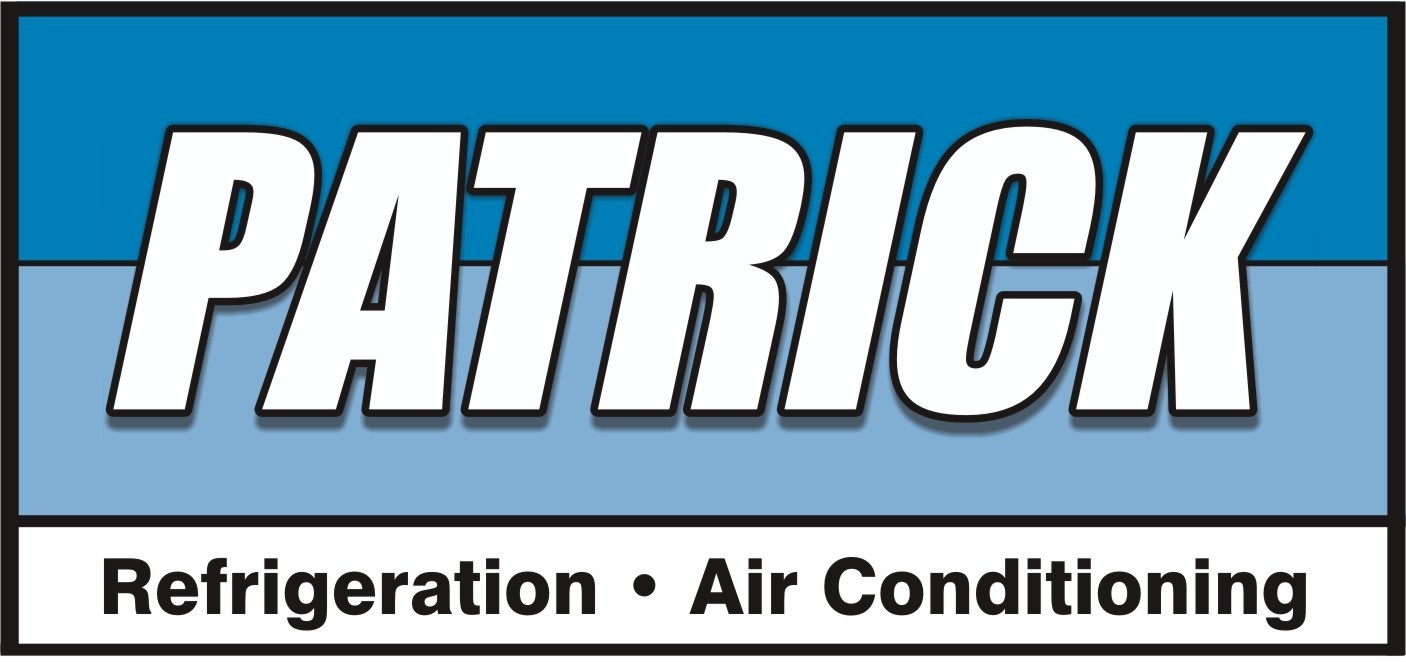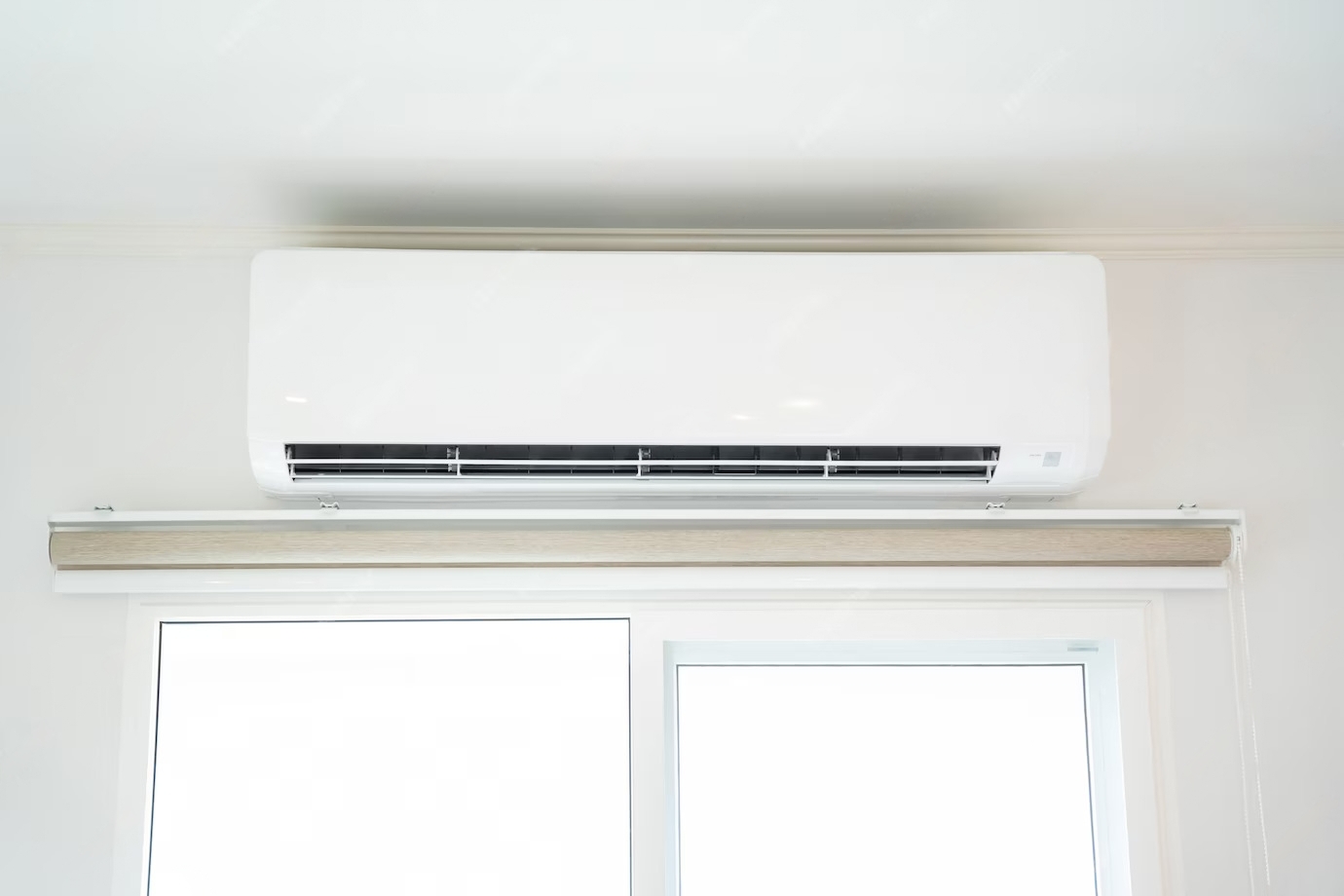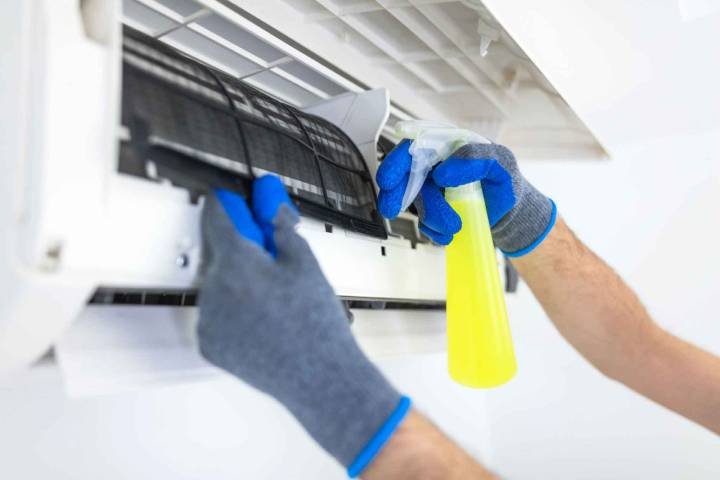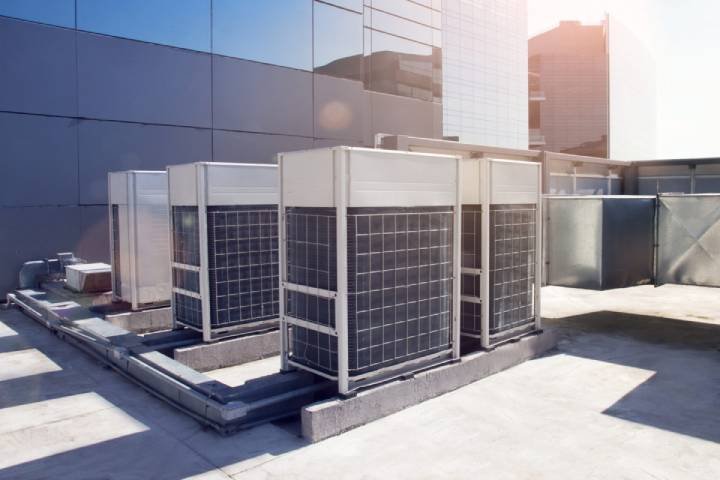With summer comes the relentless heat that can turn even the simplest task into a sweaty struggle. Further, this heat doesn’t take too long to transform your comfortable indoor oasis into a furnace.
That’s when an air conditioner becomes a lifesaver, allowing you to breathe easy, sleep soundly, and enjoy your indoor space even in the hottest months. However, choosing the right size AC is crucial to maximise these benefits, as an underpowered unit will leave you battling the heat, while an oversized one will waste energy and inflate your bills.
Worry not! This guide will equip you with the knowledge to choose the perfect size for your air conditioner, ensuring a cool, comfortable, and cost-effective summer.
Key Factors That Determine The Air Conditioner Size You Need
- Square Footage of the space you need to cool
The first step to choosing the right size air conditioner is determining the square footage of the area it needs to handle.
Start by measuring the size of your home in square feet, including the space’s length, width and height. Don’t forget to measure the height of the room from the floor to the ceiling. These measurements will help you understand the BTU (British Thermal Unit) output your AC will need. BTU is a unit of energy that specifically measures the cooling capacity of an air conditioner. In simpler terms, BTU tells you how much heat an AC can remove from your home in one hour.
Choose an AC with enough BTU to cool your home effectively.
| Space | Size | AC unit preferred with BTU |
| Small Office/Room | 100-150 sq ft | 5,000-6,000 BTUs |
| Medium-Sized Room | 200-350 sq ft | 8,000-10,000 BTUs |
| Large Space | 400-600 sq ft | 12,000-16,000 BTUs |
- Consider the climatic conditions
Climate plays a significant role in determining your ideal air conditioner size than square footage alone.
- If you live in an area with a warmer climate, you should consider an AC with a higher BTU.
- Conversely, if you live in cooler climates, choosing a lighter-duty unit can be the best option.
However, climatic conditions are not just restricted to hot and cold, as humidity can also affect the indoor temperature in your home, leaving you sweaty. Finally, consider the length and intensity of summer. Short, mild summers might be handled by a lower BTU unit, while scorching summers demand a more robust AC.
- The impact of insulation
If your home is properly insulated, you can rest assured that the cool air produced stays where it is supposed to be—inside your home. Insulation helps maintain the indoor temperature; therefore, the better the insulation, the stronger the shield.
Optimal insulation reduces the overall cooling burden on your AC, allowing you to choose a unit that is both cost-effective and powerful enough to keep your home cool and comfortable all summer long.
Uncertain about your insulation or need help finding the perfect sizing for your AC? Don’t worry, we are here to help! Our experts will assess your needs and recommend the optimal AC unit. Simply call us at (07) 4982 3740.
- Factoring the sun exposure
Understanding your home’s orientation, or how it faces the sun, is crucial for selecting the right AC size. North-facing rooms and homes with large windows naturally receive more sunlight throughout the day, which can lead to significant heat gain, especially during the hottest summer days.
The sun’s direct rays heat the exterior walls and windows, which then transfer that heat into your home. Large windows act like magnifying glasses, further intensifying the heat gain. As a result, these sun-drenched areas require more cooling power to maintain a comfortable temperature.
Thus, when selecting your AC size, factor in the sun exposure of different rooms. North-facing areas or rooms with large windows might necessitate a slightly higher BTU rating than rooms on the south side or those with minimal windows.
Want to know more about this or how refrigerated air conditioning functions? Call (07) 4982 3740. We are happy to help!
How To Calculate What Size Air Conditioner You Need?
Now that you understand the key factors influencing the ideal size of the air conditioner, let’s delve into the nitty-gritty of calculating your needs. Here are two approaches to consider:
- Calculate The Square Footage
Start by multiplying your square footage by 20 BTUs (British Thermal Units) per square foot. For example, a 1,500-square-foot home would require an AC with a capacity of around 30,000 BTUs (1500 sq ft * 20 BTU/sq ft = 30,000 BTU). However, remember that this is just a starting point.
- Utilise Online Resources
While detailed calculations might seem daunting, several online tools and calculators are available that can simplify the process of estimating the size of the air conditioner. All you have to do is input details about your square footage, location, and basic information about your home’s insulation and sun exposure. The calculators then provide a preliminary BTU estimate based on these factors.
However, remember that these tools may not provide a definitive answer. This is why you must opt for a licensed HVAC (Heating, Ventilation, and Air Conditioning) professional to calculate the air conditioner size for your room better.
Professionals can perform a Manual J calculation, which considers all the factors mentioned above, along with the specific details of your home’s construction and layout. This ensures you choose an AC that perfectly matches your cooling needs, maximising efficiency and comfort.
Air Conditioner Sizing Chart: An Approximate Guide
See the table below for an estimate of air conditioner capacity based on room size.
| Area of the Room | AC Capacity Type | Approximate AC Capacity | Most Common AC Size | Type of Room | Type Of Air Conditioning |
| Over 60m2 | High Capacity | 8kW to 9KW | 8.5kW | Open plan homes
Large living areas Shop
|
Split System Ducted AC |
| 45m2 to 60m2 | Medium or High Capacity | 6kW to 8kW | 7kW | Master suite
Medium living area Large kitchen
|
Split System |
| 30m2 to 45m2 | Medium Capacity | 5 to 6 kW | 5.6KW | Split System | |
| 20m2 to 30m2 | Small or Medium Capacity | 2.5kW to 5kW | 3.5kW | Small living area
Ensuite bedroom High ceilings
|
Window AC Split System |
| 10m2 – 20m2 | Small Capacity | 2 to 2.8kW | 2.5kW | Small bedroom
Study or office Enclosed kitchen
|
Portable Window AC Split System |
Apart from these considerations, it is also important to consider your location. The ideal AC size can vary significantly depending on your location. For example, a 30 square meter room in Darwin, a hot and humid city, might require a 2.6kW air conditioner. In contrast, a similar-sized room in Sydney with a milder climate might only need a 2.2kW unit, and even smaller, a 1.1kW unit could suffice in Tasmania’s cooler climate.
But remember: A size chart can also guide you on the path, but the final solution can only be offered through a professional.
Why Is The Right Size of Your Air Conditioner Important?
To ensure both comfort and cost-effectiveness, it is important to select the right air conditioner size. A wrong decision can lead to multiple issues, impacting your wallet and cooling experience.
What if My Air Conditioner Is Too Small?
- Inefficient Operation:An AC that is too small for the space will struggle to maintain the desired temperature, which often results in increased energy consumption and higher electricity bills.
- Reduced Comfort: An undersized AC may not be able to effectively cool the entire space, leading to discomfort and a persistently warm environment.
- Shortened Lifespan:The constant strain on an undersized AC can accelerate wear and tear, leading to a shortened lifespan for the unit.
What if My Air Conditioner Is Too Big?
- Short Cycling:An oversized AC may cool the space too quickly, causing it to cycle on and off frequently. This short cycling can lead to inefficient operation and wasted energy.
- Uneven Cooling: An oversized AC might struggle to properly circulate cool air throughout the space, leading to uneven cooling with hot and cold spots.
- Higher Energy Costs: Frequent on-and-off cycles and inefficient operation can significantly increase your energy bills.
By selecting the optimal size air conditioner unit, you can ensure efficient operation, consistent comfort throughout your space, and a longer lifespan for your AC. This translates directly to cost savings and a more enjoyable, cool environment during the hot summer months.
Final Thoughts
Opting for the right-sized air conditioner will prove to be the ultimate power move for you. A perfectly sized unit guarantees a cool and comfortable home all summer long while keeping your energy bills in check. This translates to a longer lifespan for your AC – a win-win for your comfort and finances.
Let Patrick Refrigeration help you choose the right size air conditioner unit for a cool haven, keeping energy costs low and extending your AC’s life. Call (07) 4982 3740 today.
FAQs:
- Is it better to oversize or undersize air conditioners?
Neither option is the right choice when it comes to choosing an air conditioner. An undersized unit cools poorly and wastes energy. An oversized unit cycles frequently, leading to inefficiency and uneven cooling. Choosing the right size air conditioner maximises comfort, cost-effectiveness, and equipment life.
- What size room will a 2.5 kW air conditioner cool?
The exact size depends on climate and insulation, but a 2.5 kW unit typically cools small to medium rooms (200-350 sq ft) in moderate climates with good insulation. Consult an HVAC professional for a specific recommendation.
- What size room will a 7.1 kW air conditioner cool?
Various factors affect the ideal room size. In hotter climates, a 7.1 kW unit can handle larger spaces (500-800 sq ft) or high-heat-gain rooms (north-facing windows). Consult an HVAC professional for optimal cooling performance unit.
- Are all air conditioners the same size?
No. Air conditioners come in different sizes (BTU or kW) depending on the room size, climate and insulation. You can call our HVAC professionals at (07) 4982 3740, who can help you determine the most appropriate size for your needs.




